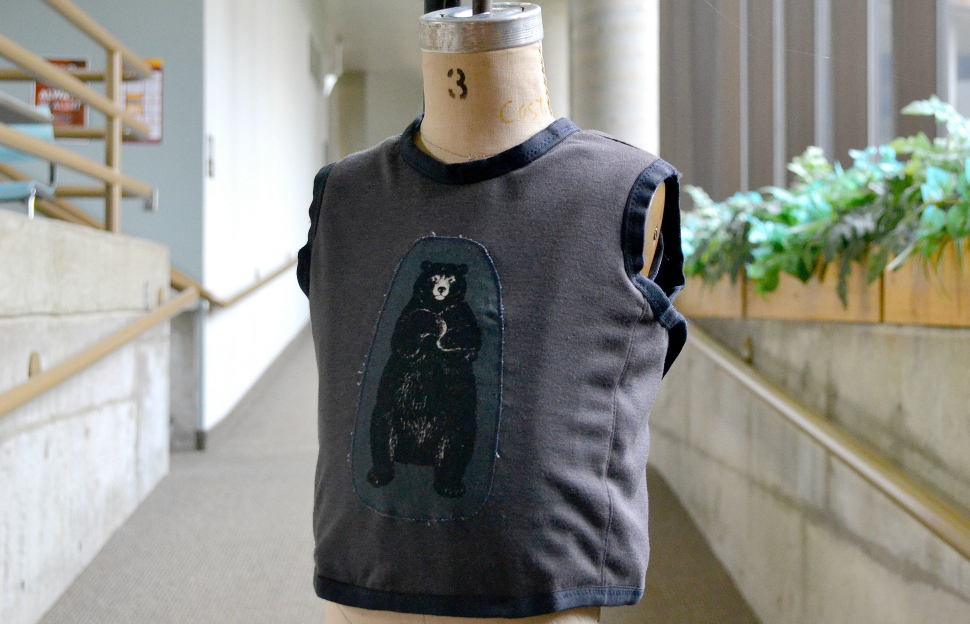Wearable Technology Lab graduate research assistant Julia Duvall (Apparel Design ‘15) and undergraduate research assistant Nicholas Schleif (Electrical Engineering & Product Design) won the student design competition at the 2016 Augmented Human conference in Geneva, Switzerland with their deep pressure vest that “hugs” children with sensory processing disorder.

Children with Autism Spectrum Disorder often shy away from physical touch even though they benefit from the calming effects of deep touch pressure. Duvall and Schleif created their design to allow parents or guardians of a child with ADS to provide comfort in situations when they are unable to touch their child. The vest uses shape memory alloy springs—similar to the those in Brad Holschuh and Lucy Dunne’s dynamic compression garment—that create lateral pressure simulating a hug when they are activated via a Bluetooth-enabled app.
Duvall began the project with significant wearable technology research experience. She interned at NASA over the summers of 2014 and 2015, and noted that her problem-solving approach was influenced by her apparel design and engineering internships there. "I don’t want to jump to a conclusion about a design’s usefulness. If the only plus to creating this type of therapy compression garment is that it hasn’t been done before, that is not good enough reason. By researching the problem so that I can understand it, I can create a useful and effective design."
From redesigning patient hospital gowns to creating a greenhouse for the winter months, College of Design faculty and graduate students work on the forefront of design research.
This February, members of the University got to view ongoing work at the College of Design’s annual Research and Creative Scholarship Showcase.
A breakthrough invention in wearable technology has the potential to change how we interact with the clothes we wear every day.





